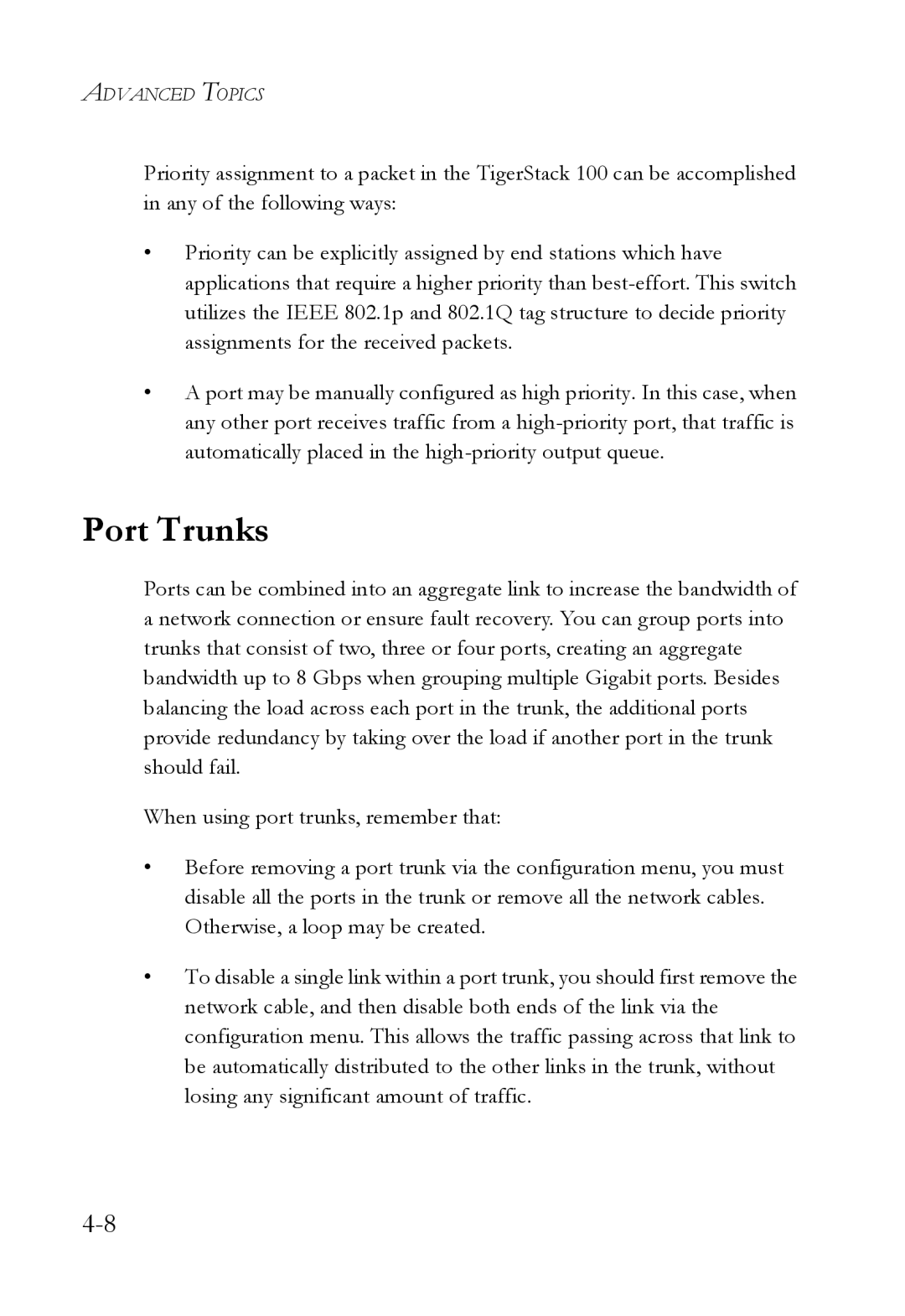ADVANCED TOPICS
Priority assignment to a packet in the TigerStack 100 can be accomplished in any of the following ways:
•Priority can be explicitly assigned by end stations which have applications that require a higher priority than
•A port may be manually configured as high priority. In this case, when any other port receives traffic from a
Port Trunks
Ports can be combined into an aggregate link to increase the bandwidth of a network connection or ensure fault recovery. You can group ports into trunks that consist of two, three or four ports, creating an aggregate bandwidth up to 8 Gbps when grouping multiple Gigabit ports. Besides balancing the load across each port in the trunk, the additional ports provide redundancy by taking over the load if another port in the trunk should fail.
When using port trunks, remember that:
•Before removing a port trunk via the configuration menu, you must disable all the ports in the trunk or remove all the network cables. Otherwise, a loop may be created.
•To disable a single link within a port trunk, you should first remove the network cable, and then disable both ends of the link via the configuration menu. This allows the traffic passing across that link to be automatically distributed to the other links in the trunk, without losing any significant amount of traffic.
